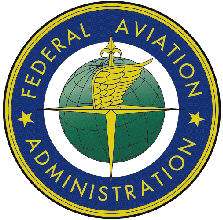Aero-Tips!
A good pilot is always learning -- how many times have you heard
this old standard throughout your flying career? There is no truer
statement in all of flying (well, with the possible exception of
"there are no old, bold pilots.") It's part of what makes aviation
so exciting for all of us... just when you think you've seen it
all, along comes a scenario you've never imagined.

Aero-News has called upon the expertise of Thomas P. Turner,
master CFI and all-around-good-guy, to bring our readers -- and us
-- daily tips to improve our skills as aviators, and as
representatives of the flying community. Some of them, you may have
heard before... but for each of us, there will also be something we
might never have considered before, or something that didn't
"stick" the way it should have the first time we memorized it for
the practical test.
It is our unabashed goal that "Aero-Tips" will help our readers
become better, safer pilots -- as well as introducing our
ground-bound readers to the concepts and principles that keep those
strange aluminum-and-composite contraptions in the air... and allow
them to soar magnificently through it.
Look for our daily Aero-Tips segments, coming each day to you
through the Aero-News Network. Suggestions for future Aero-Tips are
always welcome, as are additions or discussion of each day's tips.
Remember... when it comes to being better pilots, we're all in this
together.
Aero-Tips 04.09.06
 Almost all pilots (except Sport
Pilots and those flying gliders or free balloons) must hold a valid
FAA medical certificate to exercise the privileges of their pilot
certificate. Physical examinations are valid ranging from six
months (1st class certificate to exercise an Airline Transport
Pilot, or ATP certificate) to three years (3rd class medical for
Private or Recreational privileges if the pilot is under age
40).
Almost all pilots (except Sport
Pilots and those flying gliders or free balloons) must hold a valid
FAA medical certificate to exercise the privileges of their pilot
certificate. Physical examinations are valid ranging from six
months (1st class certificate to exercise an Airline Transport
Pilot, or ATP certificate) to three years (3rd class medical for
Private or Recreational privileges if the pilot is under age
40).
We are required, however, to self-certify our fitness to fly
every time we prepare to fly.
Some medical conditions mandate disqualification
for flight , including:
- Personality disorder manifested by over acts
- Psychosis
- Alcoholism
- Drug dependence
- Epilepsy
- Unexplained unconsciousness
- Myocardial infarction
- Angina pectoris
- Diabetes requiring medication to control
Other conditions may be temporarily
disqualifying , such as:
- Acute infections
- Anemia
- Peptic ulcer
Not Feeling Well
 Say you've happily avoided all of
the above, and you just feel a little under the weather. Or, you
have a condition that passed a Special Issuance medical, but now
symptoms worsen. Can you still fly?
Say you've happily avoided all of
the above, and you just feel a little under the weather. Or, you
have a condition that passed a Special Issuance medical, but now
symptoms worsen. Can you still fly?
Even a minor illness suffered can seriously degrade performance
vital to safe flight. Fever and distracting symptoms can impair
judgment, memory, alertness, and the ability to make calculations.
Gastrointestinal illness and dental problems are especially
insidious because they can trap gases in the body that can expand
to cause debilitating pain at altitude.
Although you might be able to control symptoms with medication,
even over-the-counter remedies may dangerously decrease pilot
performance.
From the Feds : "The [Federal Air Regulations]
prohibit a pilot who possesses a current medical certificate from
performing crewmember duties while the pilot has a known medical
condition or increase of a known medical condition that would make
the pilot unable to meet the standards for the medical
certificate."
Aero-tip of the day: If a flight requires you
hold a medical certificate, ultimately it's up to you to determine
if you're healthy enough to fly. Make this decision wisely because
pain, decreased motor skills or impaired judgment can have very
real adverse consequences.
 ANN's Daily Aero-Linx (05.06.25)
ANN's Daily Aero-Linx (05.06.25) ANN's Daily Aero-Term (05.06.25): Ultrahigh Frequency (UHF)
ANN's Daily Aero-Term (05.06.25): Ultrahigh Frequency (UHF) ANN FAQ: Q&A 101
ANN FAQ: Q&A 101 Classic Aero-TV: Virtual Reality Painting--PPG Leverages Technology for Training
Classic Aero-TV: Virtual Reality Painting--PPG Leverages Technology for Training Airborne 05.02.25: Joby Crewed Milestone, Diamond Club, Canadian Pilot Insurance
Airborne 05.02.25: Joby Crewed Milestone, Diamond Club, Canadian Pilot Insurance





